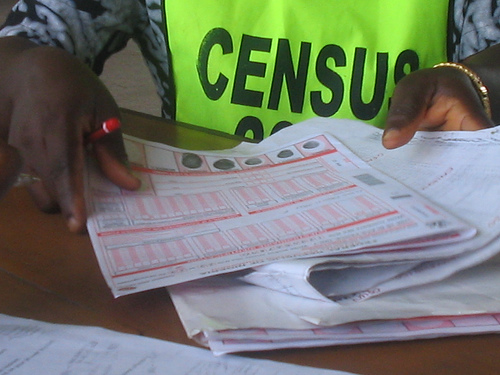The Acting Director-General, National Population Commission (NPC), Ms Ugoeze Mbagou, has said that the N187 billion earmarked for 2023 Population and Housing Census slated for April 2023 was inadequate.
She made this known during a Roundtable meeting organised by the National Institute for Legislative and Democratic Studies (NILDS) on Thursday in Abuja.
The theme of the event is “The 2023 Population and Housing Census: Issues, challenges and Way Forward.’’
Mbagou said that the census was going to be a digital exercise, therefore the amount required far exceeded the N187 billion.
“What we need is far above that (N187 billion). That is why we might need supplementary budget.
“What delayed the census this year was getting government’s approval for us to do it.
“The President graciously with the State Council said we can do population and housing census.
“We requested for about 187 billion which is not adequate, but with the go ahead of the Federal Government, we are asking for supplementary budget.
“And since there is an approval from them and they appreciate the importance of a census, I do not think funding will be a problem with the help of United Nations Population Fund (UNPF) and other donor agencies.
“We are relying on 50 per cent from us and 50 per cent from development partners,” she said.
The acting director-general further said that the commission would on Monday, June 27, commence a trial census.
“The trial census is based on geopolitical zones; six states of the federation will have full 100 per cent census coverage while the rest of the states will have one local government area.
“The trial census is actually the training. We are going to train enumerators before we go into proper enumeration which is when enumerators have to go to households, Mbagou said.
The acting director-general said that arrangements had been made to ensure the security of the enumerators at the different venues of the training.
She said the commission had successfully demarcated 772 local government areas out of the 774 in the country.
“We have not demarcated two LGAs in Borno and Zamfara because of the security challenge,” Mbagou said.
In his remarks, Director -General of the Institute, Prof. Abubakar Sulaiman said that President Muhammadu Buhari had approved April 2023 for conduct of the Census across the country.
Sulaiman, who noted that the step was in the right direction, said there were several issues needed to be critically assessed and considered to ensure a successful, acceptable and accurate census.
“The proposed 2023 census is coming 17 years after the last exercise. This is a violation of the UN recommended 10 years period.
“Therefore, there is need to confront and understand the issues associated with this delay and those that were raised in the 2006 exercise especially by the international observers and foreign agencies,” he said.
Some of the issues, Sulaiman said, included: the politics of federal character, ethnicity and religious consciousness, record doctoring and geopolitics of resources.
“It is also envisaged that the growing insecurity in several parts of the country may significantly hamper the conduct of the census.
“Other important issue that may shape the conduct of the census is the use of ICT and the synchronisation of census data with other national identity databases in the country such as the National Identity Number (NIN),” he explained
The Acting Director, Department of Economic and Social Research, NILDS, Dr Asimiyu Abiola, said that the size and structure of a given population was one of the major determinants of economic performance and future prospects.
“Having an accurate picture of the size and structure is critical for economic planning and policy formulation.
“The last population census in Nigeria was conducted in 2006, a scenario that falls short of the United Nations (UN) recommendation that census exercise be carried out at least once in every 10 years,” he said.
Abiola said that the challenges posed by religion and cultural mind-set were potent and would require adequate attention. (NAN)




 Premier League
Premier League